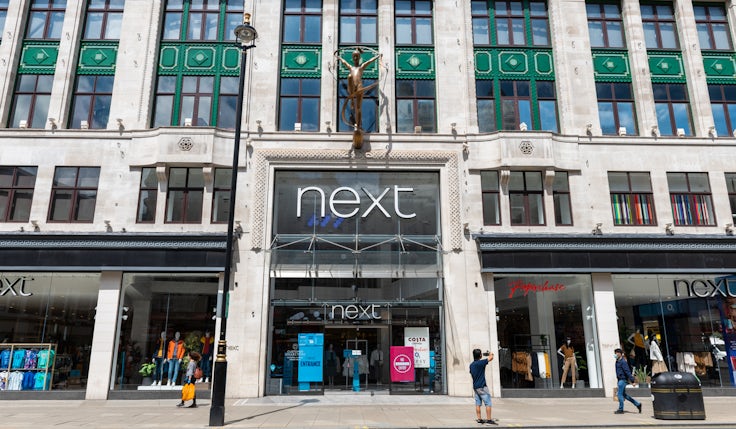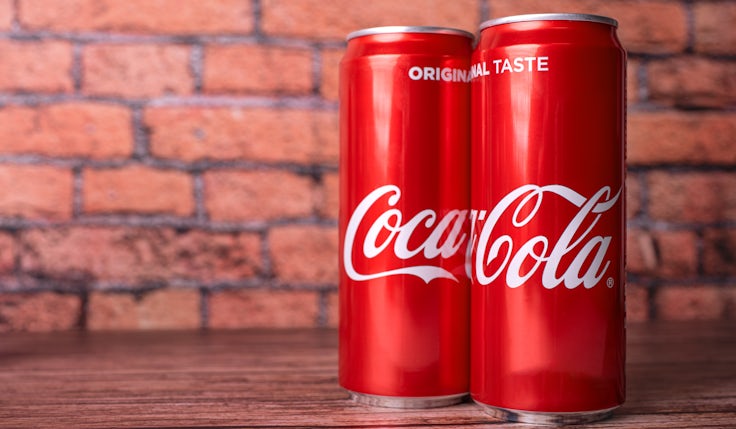Next credits strong online sales for ‘better than anticipated’ Christmas
Clothing retailer Next has delivered better than anticipated full price sales in November and December, which it attributes to investment in its online services.
 Clothing brand Next is crediting its long-term investment in its online retail capabilities for a “better than anticipated” at the back end of last year.
Clothing brand Next is crediting its long-term investment in its online retail capabilities for a “better than anticipated” at the back end of last year.
In the final quarter of the year, full-price sales through its online services rose 9.1%, and contributed to a 7.7% increase year on year for the second half of the year. The brand says “online performed particularly well, which we believe was as a result of service improvements versus last year”.
By contrast, full-price sales for its retail outlets were mostly flat at 0.6% for Q4 and 0% for the last six months of the year.
Overall the brand recorded a 5.6% increase in full-price sales in Q4 versus the same period in 2022. This resulted in a 5.7% uplift in sales in the nine weeks to 30 December versus last year, equating to a £38m improvement on the brand’s previous estimate for the festive period.
Looking on a week-by-week basis, while the brand recorded a 10% uplift in sales in the two weeks closest to Christmas (those starting 17 and 24 December) it says its sales performance was “distorted” as a result of Christmas Day falling on a Monday. Instead, it suggests performance over the period is best demonstrated by looking at growth over the three weeks starting 10 December, which equates to a 4.6% increase in sales.
Next’s CEO on why it uses a ‘hurdle rate’ for setting marketing budgets
Next also credits its “well-controlled” stock for the rise in full-price sales. The retailer went into its end of season sale with 12% less surplus stock than the previous year.
It comes as data from Barclays demonstrates clothing stores suffered a 0.5% fall in spend throughout 2023 as a result of inflation leading to many clothing retailers relying on discounts to clear stock.
Online growth
Talking about Next’s online growth over Christmas, Richard Lim, CEO at Retail Economics, says the retailer’s continued investment in its digital offer is standing it in good stead.
“There’s a gap emerging between those retailers who have invested heavily in their digital proposition over the last decade with those who have not and Next is leading the pack,” he says.
That is backed up by analysis from Charlie Huggins, manager of the Quality Shares Portfolio at Wealth Club, who says: “Next’s online sales were particularly strong reflecting better stock availability and excellent operational execution. This stands in stark contrast to other retailers like Superdry, which have struggled in the prevailing economic environment.”
In addition to the improvements in its online capabilities, the brand has also been investing in loyalty schemes like its Next Pay credit scheme, and its Next Unlimited delivery saver scheme which is designed to keep consumers within its ecosystem.
The year ahead
Of the year ahead Next says: “On the face of it, the consumer environment looks more benign than it has for a number of years, albeit there are some significant uncertainties.” It notes that easing pressure on consumer finances due to rising wages relative to inflation has led to the most favourable retail market for 18 months.
However, uncertainties include a potential weakening employment market, which the brand says could offset the opportunity afforded by wages rising ahead of inflation.
Consumer confidence rises pre-Christmas, but long-term causes of concern remain
Due to the better-than-expected performance the brand has issued a new estimate on full-price sales for the year ahead, which it expects to hit 2.5% on continuous business.
This time last year the brand was more cautious: despite a strong Christmas period in 2022, it issued warnings about the potential impact of wider economic weakness on its performance in 2023.
Its forecast for the wider group, including clothing brand FatFace, which it took over in October, rises to a 6%.
In addition to FatFace, Next has made a number of acquisitions over the past two years: it bought 74% of the Joules brand in November 2022, the Made.com brand and its associated IP in December of the same year, and the Cath Kidston brand last March.
Additionally, at the start of September, it bought a further 21% stake in clothing retailer Reiss. It now controls 72% of the company. At the time Next’s CEO Lord Wolfson said: “Our aim is to make great investments where we can add value, and if those investments are available, we will end up as a big conglomerate, and if they’re not, we won’t.”





